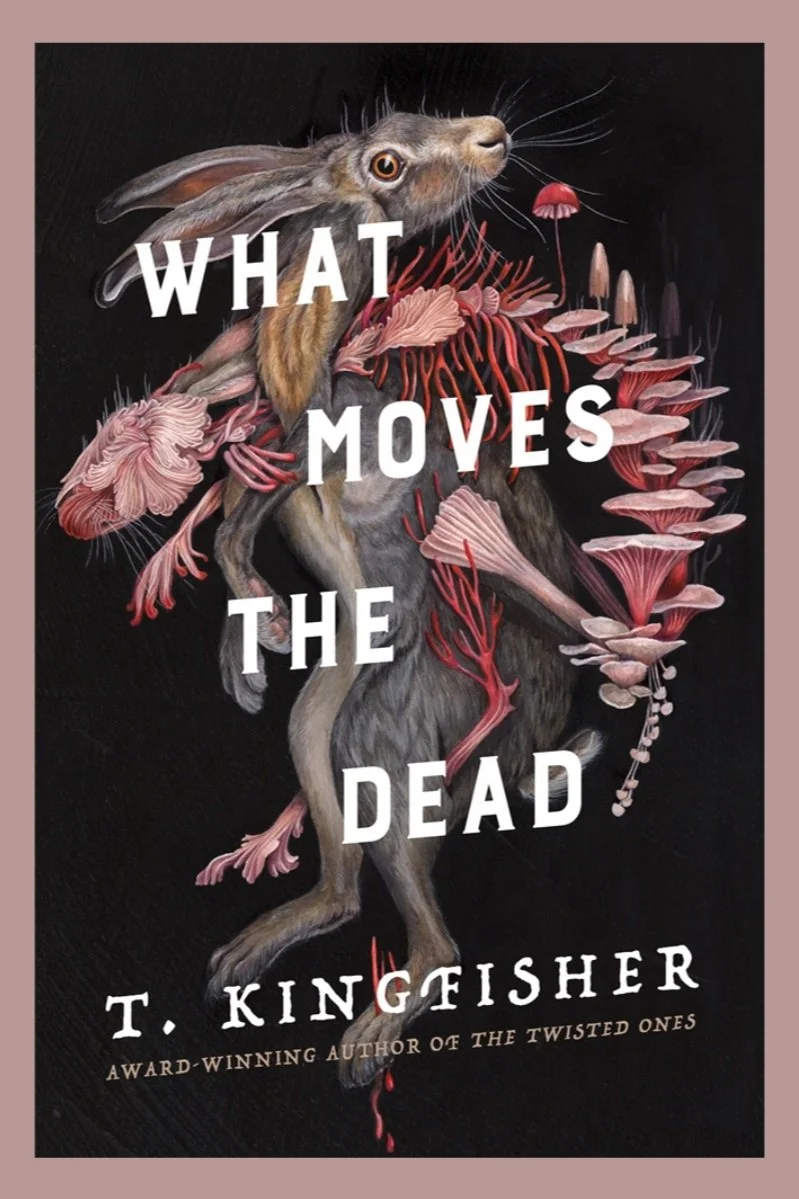A haunting, Indigenous twist on the vampire myth, “The Buffalo Hunter Hunter” blends frontier realities, vengeance and grief into a brutal, beautifully written horror story.
All tagged horror
A Child Alone With Strangers – Philip Fracassi
This is a sprawling, character-driven horror novel mixes crime, grief and the supernatural, but at nearly 600-pages, the pacing often drags. Still, the depth of character and atmosphere kept me engaged.
Lucky Day – Chuck Tingle
Chuck Tingle’s “Lucky Day” blends gore, grief and cultural critique into absurdist horror that’s unsettling, chaotic and surprisingly moving.
The Midnight Knock – John Fram
“The Midnight Knock” starts with tense, noir-tinged horror and an irresistible mystery, but its overstuffed mythology can’t match the promise of its first half.
If It Bleeds – Stephen King
A solid addition to Stephen King’s bibliography, though it may not stand alongside his most enduring works. The stakes in each story feel high, and while not every piece reaches the heights of his best work, the collection as a whole offers a compelling, if occasionally uneven, journey into King’s evolving narrative style.
The Black Guy Dies First: Black Horror Cinema from Fodder to Oscar – Robin R. Means Coleman and Mark H. Harris
Robin R. Means Coleman and Mark H. Harris lean into their respective expertise – academic and journalist – to explore the evolution of Black representation in horror, organizing their insights around themes, tropes and industry trends that often mirror shifting racial attitudes in America.
Never Whistle at Night: An Indigenous Dark Fiction Anthology – Shane Hawk and Theodore C. Van Alst Jr.
With 26 stories in the collection, it's unsurprising that not all of them resonated. I enjoyed about half, while others felt flat, somewhat confusing or a bit derivative of stronger stories in the mix. Still, this anthology serves as an excellent entry point to the world of Indigenous writers who are making waves in literature right now.
I Was a Teenage Slasher – Stephen Graham Jones
Ultimately, “Slasher” is an intriguing experiment into metahorror and a homage to 80s slashers (mostly Jason Voorhees) that narrowly misses its mark. If you’re looking for something punchy, gory and unapologetic, I’d suggest Chuck Tingle’s “Bury Your Gays” instead.
Cursed Bunny – Bora Chung
Overall, “Cursed Bunny” is a creative, yet uneven collection. While some stories are haunting and memorable, others feel stretched or underdeveloped. Fans of unconventional horror might find it worth the read, but for me, it was hit or miss.
IT – Stephen King
Despite its length, “IT” stands as one of Stephen King’s most unsettling and complex works, effectively weaving psychological and supernatural horror with real-world brutality. Although King has made a career out of exploring dark and unhinged themes, “IT” pushes those boundaries.
Craven Manor – Darcy Coates
The first half of the book had genuinely good moments, and I'll give the author credit for including a cursed black cat—one of the few charming touches. By the end, however, the story lost all coherence, and I was skimming the last few chapters. All-in-all, “Craven Manor” is simply a gothic misadventure.
Bury Your Gays – Chuck Tingle
While not aiming for highbrow literature, it offers a perfect mixture of astute social commentary, a dash of camp and a fair amount of meta grievances. We may not know the true identity of Chuck Tingle, but it’s fair to say that like R.F. Kuang and “Yellowface,” he has a proverbial axe to grind with the entertainment machine.
This House Is Haunted – John Boyne
"This House is Haunted" channels the spirit of a Victorian gothic novel with John Boyne capturing the genre's signature atmosphere and whispered gossip about dastardly deeds at a remote English estate. This unique blend of classic setting and contemporary heroine is the novel's greatest strength in what is otherwise a passably but mostly mediocre affair.
The Wishing Pool and Other Stories – Tananarive Due
Expectation: Stories to chill-the-bones from a noted voice in the Black horror genre.
Reality: Interesting scenarios and characters are largely overshadowed by ancillary details and incomplete endings.
The Taking of Jake Livingston – Ryan Douglass
Expectation: A “Wednesday” meets “The Sixth Sense” gay horror-romance set in suburban Atlanta.
Reality: The subject matter was darker than expected – a plus – but the execution faltered near the end.
Motherthing – Ainslie Hogarth
Expectation: A dark and twisted domestic horror story about how far a young wife will go to save her husband from the ghost of her mother-in-law.
Reality: A bit of a recursive mess, the premise is too thin to sustain nearly 300-pages, but the last few chapters do deliver.
Anoka – Shane Hawk
Expectation: An anthology of loosely connected stories all set in the Halloween Capital of the World.
Reality: The setting isn’t leveraged as much as anticipated (although there are a few nice winks for locals) but Shane Hawk showed promise with this somewhat even horror collection.
It Came from the Closet: Queer Reflections on Horror – Joe Vallese
Various queer writers dissect and debate the overt and obvious subtexts of both mainstream and art house fare with a mixture of analysis and theory. Many of the essays veer into the personal, showing how important the horror genre is to out and proud queers of a certain age.
What Moves the Dead – T. Kingfisher
Expectation: A queer retelling of Edgar Allen Poe’s “The Fall of House of Usher.”
Reality: Shortcomings of the gothic horror genre aside (for this reader anyway), there was nothing “moving” about this uninspired novella.
Our Wives Under the Sea – Julia Armfield
Expectation: A supernatural horror story focused on a lesbian couple navigating the devastating aftermath of an extended trip under the sea.
Reality: Slowly plotted and more literary than mindless, this is for people who like their horror light and their emotions heavy.



















